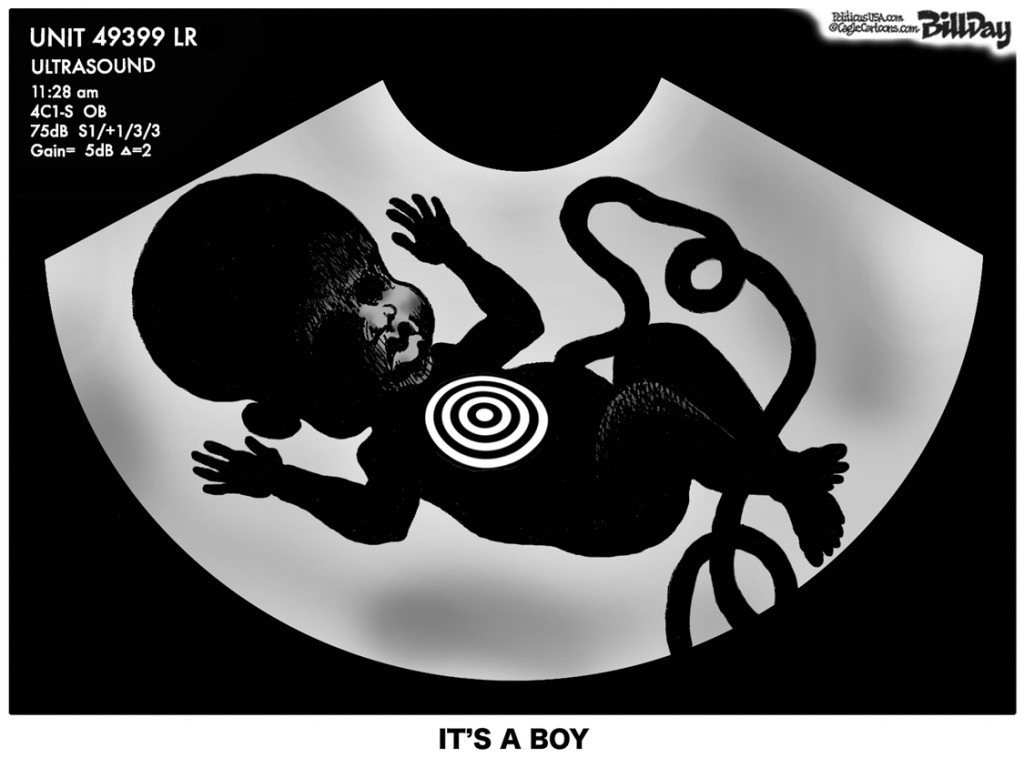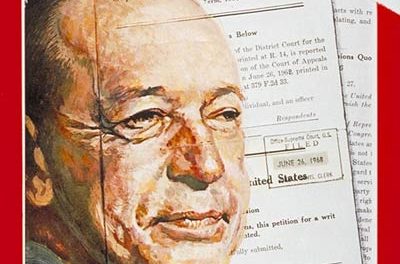It’s hard these days not to feel that Memphis is under siege, beaten up, and out of control.
No, we’re not talking about youth violence. We’re talking about television news.
It is impossible for us to remember a time when Memphis has been subjected to such an unrelenting barrage of hysterical reporting and the slanting of stories to validate the clear narrative that African-American youths are marauding all over Memphis and that youth violence is uncontrollable and an incurable cancer on this city.
What’s been lost in this sensationalistic coverage is the greatest professional benefit that journalists should provide – to provide objective factual information and perspective. Instead, we get the ad nauseam replays of the now notorious Kroger video at every opportunity (think WREG-TV) to enflame the issue and keep people tuning in for the outrage.
It used to be that “if it bleeds, it leads,” but now it’s “if it bleeds two weeks ago and black kids were involved, it leads forever.”
There’s Another Side
We got an email over the weekend from a well-known Memphis business leader and it said: “Do we know anybody at Channel 3 to tell them they are just hurting their own market by sending these constant breaking news texts that highlight the negative. You’d think we were on the trail of ISIS to read these ‘someone shot in Raleigh’ messages.”
But he’s not alone. The subject of the tone of television coverage is a regular topic at meetings of organizations and businesses in Memphis, particularly those who are working and supporting programs addressing youth crime, youth poverty, and youth opportunity. But, you’ll never see stories about them on the nightly news.
The downside of all this coverage is that it provokes politicians t take actions to calm down the political heat that comes from the unremitting drumbeat of TV coverage. It’s been reported that county officials have even contacted the governor and state homeland security commissioner about the potential of the National Guard being deployed to Memphis. It’s hard to think of a decision that would be dumber than this, and elected officials should resist the temptation to grandstand politically on this issue while since plans and program are underway, which, based on the numbers, appears to be working.
We’re not saying that Memphis doesn’t have a youth crime problem. Almost every city, particularly one with our levels of poverty, does, but watching television news, it’s hard not to be left with the impression that every African-American child in Memphis is in trouble, being charged with a crime, or simply terrorizing the city.
Youth Crime Is Down
It is a curiosity that news outlets would be so intent on poisoning public confidence and driving people out of the city from which they make their profits. It’s an unsustainble business model because if they are successful, they weaken the city’s image and they damage its ability to attract new jobs, which in turn generates less money from a dying region for their broadcasts.
We’ve all become numbed by the steady diet of shootings, woundings, and violence that start almost every newscast in this city (although Fox News tries to buck the trend). It’s to the point that some of us don’t even turn on the news until five minutes after it starts in hopes of missing the nightly drama, which regularly involves amplifying a shooting without providing any context (such as two friends arguing). Often, these shootings are the breaking news at night and then we never hear about them again, because the reality doesn’t live up to the hype and the story fizzles in the light of a new day.
The easy stories are the ones about the youths who commit crimes and act out in public places. The real stories, however, are the courageous ones about how many young people living in poverty don’t do any of these things. They go to school, they participate in school activities, they are plugged into after school programs, and they resist those who would convince them to join in cycle of arrests and jail cells.
Here’s a headline you’ll never hear on television news these days: youth violent crime is down.
Programs Are Working
In 2009, Memphis Police Department arrested and lodged 1,452 charges against young people for Part I Violent Crimes, including aggravated assault, which is the crime that triggered all the intense coverage in recent weeks. In 2013, MPD placed 1,295 charges against young people for Part 1 Violent Crimes. This indicates to us that all of the anti-gang, anti-younth gun violence programs, and other attacks on youth crime are having an effect. (Note: Keep in mind that some people are charged with multiple offenses so the actual number of young people is less than the number of charges.)
For the purposes of these reports, young people are described as anyone under 24 years of age, so it’s worth remembering that in 2013, only 478 charges for Part 1 Violent Crime were lodged against youths under 18.
Meanwhile, Shelby County Juvenile Court statistics validate the trend. In 2012, 3,949 youths were detained (held in detention), and in 2013, it was 1,504 (90 were referred to be tried as adults). In the first six months of last year, 374 young people were detained by Juvenile Court, and this year, the number is 328.
All in all, it speaks to the effectiveness of programs addressing youth violence and to the prevention and intervention programs led by Juvenile Court and community partners like Shelby County Schools.
One reporter added his own editorial comment about youth crimes by suggesting they were increasing because of cuts to the budgets of Memphis Police Department. For the record, in the past 10 years, the total adopted budgets for MPD amount to $2.1 billion (yes, with a b), and since 2008, it has increased from $191 million to $246 million, a 22% increase.
Our Biggest Opportunity
We do not intend to make light of the problem of youth violence, since it is the darkest indictment of families’ inability to create a positive environment where children can see a better future and better options. It also reminds us of the toxic stress of concentrated poverty that is a malignancy on this city’s ability to succeed.
But here’s the thing. Our amazement should not be about how many young people get into trouble. It should be that in the midst of alarming trends in child poverty – one out of two children in Memphis live in poverty – the vast majority of them don’t ever get into trouble.
It has been determined that 9,000 young people belong to gangs, and that is a major concern for Memphis, but at the same time, it’s worth remembering that 161,000 young people under the age of 18 don’t belong to gangs.
As we have written for several years, one of Memphis’s greatest opportunities – and challenges – is that compared to the 51 largest MSAs in the U.S, we have a bulge in the population that is under 18 years of age. It’s part of the Delta phenomenon for more children, and it plays out in Memphis with 26% of the population being younger than 18 years old, compared to 21.7% in Nashville, 20.8% in Chattanooga, and 19.1% in Knoxville. In other words, Nashville and Memphis have comparable populations, but Nashville has 137,678 of its population under 18 and Memphis has 169,897.
Just the Facts
The opportunity is that while cities are fighting for talent, we have our talent sitting in our classrooms today. That’s why our school reform programs are so crucial to our future, and it’s also why we should fight for every youth in Memphis to reach their potential. Our economic future as a city depends on our success in moving them into the economic mainstream.
It’s a tremendous challenge, but we’ve proven with school reform that we can be a national leader. It also requires the attention of all of us and it requires the facts and objectivity so we can decide as a community what to do to lock up the minority of youths committing violent crimes while unlocking the futures of the majority of youths who don’t.
It requires our best efforts and a mature conversation about what has worked, what is working, and what we can do in the future. It would be helpful if television news saw this as part of its responsibilities to the city in which it plays such an important role.






Sanity. Yes. Thanks again, Tom.
I can’t say enough about how I am educated by Smart City Memphis time & time again. You bring sanity through numbers. The progression of the trends when they are quantified speak the truth. Thanks for putting them in the light.
Yes, Accentuate The Positive because, in spite of the over-hyped focus on pockets of bad news, there certainly is a lot of positive among the 170,000 Memphians below the age of 18. There are numerous young people achieving significant accomplishments here, kids in every zip code, every school, every race, and local media should seek out and promote these stories because they are our stories.
As for the hyperbole that “African-American youths are marauding all over Memphis,” the recent Kroger and South Bellevue mobs did, in fact, happen. News Channel 3 provided a credible, non-sensational story with concern to South Bellevue at Central High School following a football game.
From the Channel 3 website:
(“All of a sudden just bout 20 kids are on top of my car with about 40 more kids around my car and they kicking, they stomping, they jumping, you know they hitting the windows,” (witness Shannon) Mourning said.
The victims said the kids were all over the place wreaking havoc.
“They was just laughing and hollering, and doing what they were doing and having fun with it,” Mourning said.
Police reported a 51-year-old man was attacked in his car after honking his horn at the teenagers to move out of the way.
“They had done bricked his car, stomped his car, did the same thing,” Mourning explained.
Mourning reported seeing the teenagers beat an elderly man and another teenager, “I actually looked at the child. His face was bleeding. You know they had done beat him.”
Police confirm a 55-year-old man and a 16-year-old were assaulted in the area at that time.)
Obviously, the event seems to have been spontaneous, and while we expect young people to act crazy sometimes, just like I acted crazy as a kid, this event resulted in an assault and property damage, not to mention contributing to a heightened sense of fear that no city needs. It scares the people who obey the rules, people like the African-American mother, Sharon Mourning, who states that she was concerned for her life and for that of her daughter with her in the car.
Anyone in their position would express the same fear, a measured, reasonable fear in response to absolutely unacceptable, criminal behavior.
So, what to do? What obvious factors contributed to the immediate circumstances allowing for the Central High-area mob in particular? A reasonable person would contend that what happened at the Kroger and South Bellevue “mob incidents” would not have occurred if the kids were with their parents. Of the parents most frequently missing in the lives of these children is their fathers.
So how about this: Effective immediately, the Shelby County Schools Athletic Association should encourage Memphis-area families to attend as many interscholastic athletic events as possible through granting free admission to all students and their fathers. If dad is there with their children, either the father or the man serving in the role of father, the game environment should be a safe one conducive for sportsmanship, school spirit, fun, and family. After the game, kids with dad don’t stomp on cars and people.
This is not idealistic. It could become a common practice, and schools could sell more concessions and spirit wear in lieu of the lost gate fees while competing at the turnstile for numbers that could accumulate into a contest in pursuit of a significant financial award from local philanthropists for the winning schools. Cops, curfews, and discontinuing night games is reactive and does not address systemic causes of kids who need their fathers. Fear-promoting media is a cancer, nonconstructive, unnecessarily divisive. Good for you to take your position. Uplifting our good stories among our 26% of the population who is our future should be on everyone’s priority list.
More, Memphis families living life together as kids learn civility from the adults primarily responsible for transmitting it should be a clear priority.
Thanks, Clay, for your thoughts. Just to make sure this is obvious: We weren’t trying to accentuate the positive. We just believe the media should accentuate the facts in a relevant and accurate context. As for me, I never wanted to go to a football game with my parents, and I didn’t, but it would definitely help. Unfortunately, a large percentage of these kids living in poverty are living in a household headed by a mother only. But we get your point.
Do you think the sensationalizing of negative news can be resolved with a petition urging news stations to show more positive news?
whens the next candlelight vigil?
sing along?
teddy bear at a light pole drop off?
Sebastian: We’re not sure the petition will resolve the problem, but the first step is to let the news stations know that there are viewers who are turned off and want something different.
Sebastian-
Perhaps I am being too cynical, but I think the simple answer to your question is “no”.
I was fortunate enough to participate in a discussion group several years ago that included a group of mostly young professionals and representatives of various media outlets. The conversation (as I remember it) quickly veered to this topic and the response from some of the media reps, while sympathetic, was that “the media” is obligated to provide a type and certain level of service. They see reporting the news in such a manner as described here as supporting their overall mission in a world of 3-second sound bites and where headlines and adds for the evening news may be the only time they are able to capture the attention of their audience. Basically, they believe they are reporting the types of news their audience wants in a manner they want to hear it. They claim to have dabbled with some of these ideas at one time or another- reporting positive stories on a consistent basis- but I remember getting the impression that they simply could not grasp the concept of the need for such an approach.
Urbanut:
You are so right. They have a tendency to fall back to their default positions that they are only providing what the viewers want. I always wonder, which viewers?
In a discussion with young professionals a few months ago, this topic came up, and I asked how many people in the room did not watch TV news anymore, and a majority of the hands went up. I keep wondering if the TV stations’ research into what viewers want only ask people still watching news when it should focus more on those who have quit watching but would return if the news was more reflective of what’s really going on in Memphis, not just about crime, but about government, neighborhood programs, etc.
My favorite example was a research fellow at St. Jude who said that one night when there were no shootings or violent crime in Memphis, the breaking news was about a murder 100 miles away in Arkansas. “They can’t let even one night go without blood and gore, even if they have to travel an hour and a half to find it.”